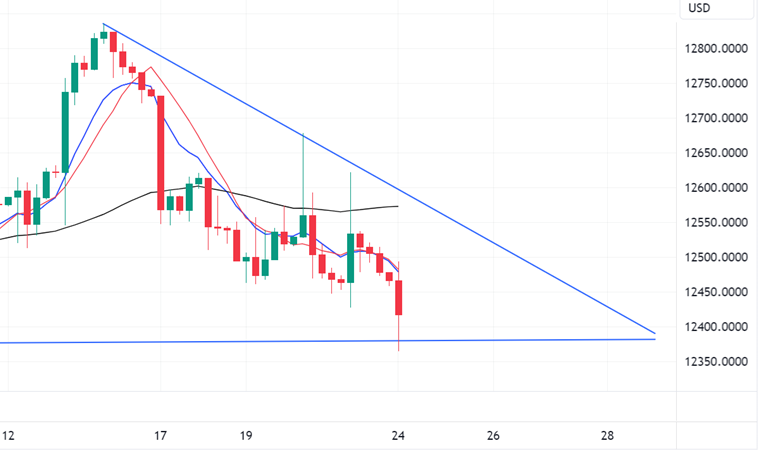Chinese stocks lag as the property sector tumbles, with China’s stimulus and Fed rate decisions in focus.
Chinese stocks lagged against peers for the day, coming under pressure from steep losses in the property sector amid renewed concerns over a debt crunch in the industry.

CHI50, 4-Hour Chart
Several essential news items will affect the Chinese stock market this week, including the Fed interest rate decision on Thursday and the Central Political Bureau meeting that may be held on the mainland this week. Some analysts believe that the Chinese stock market is expected to be supported at a low level or to rebound as the market looks forward to the inland policy to revitalise the economy.
China’s economic recovery was slower than market estimates in the year’s first half. Since the beginning of the year, mainland consumption, inflation, and investment sentiment have been sluggish, which has affected investors’ expectations for China’s economic growth. Investors have sold China’s stock markets, and the Chinese stock market has lagged other European, American, and Asian stock markets.
Much anticipation surrounds the US Federal Reserve’s latest interest rate decision. Over 90% of the Fed is expected to raise interest rates by 25 basis points, bringing the Federal fund rate level to 5.5%. This pressure to raise interest rates, coupled with the Fed’s announcement in July that it may raise rates again in September, is expected to impact the global economy negatively and make investors more cautious.
On Monday, the Chinese stock market followed the trend of other weak markets and experienced a decline. The China A50 index started at 12,398 points but rebounded to 12,526 points after some low-level buying. However, selling orders soon appeared, and most of the gains were lost, with the index hovering around 12,450 points for the rest of the afternoon.
The market estimates that the Chinese government and the People’s Bank of China may introduce economic stimulus programmes and monetary policies as China’s economic growth slumps and the Chinese yuan weakens. These expectations boost the Chinese stock market. Last week, the Chinese government launched consumption stimulus measures to encourage residents to spend. Among them, the implementation of the order to limit the purchase of electric vehicles and the policy of sending home appliances to the countryside have boosted the rise of related stocks. However, the Chinese government has yet to announce relevant policy changes regarding China’s domestic real estate debts and local government debts, which may affect investors’ confidence in China’s stock.


